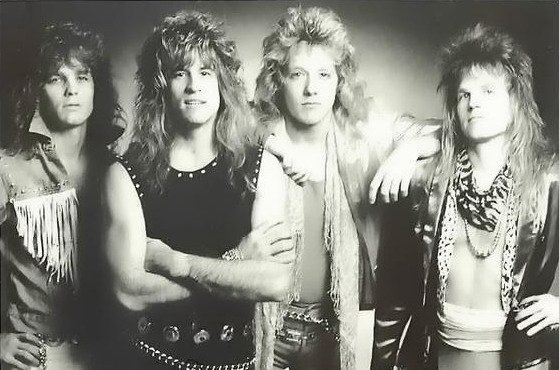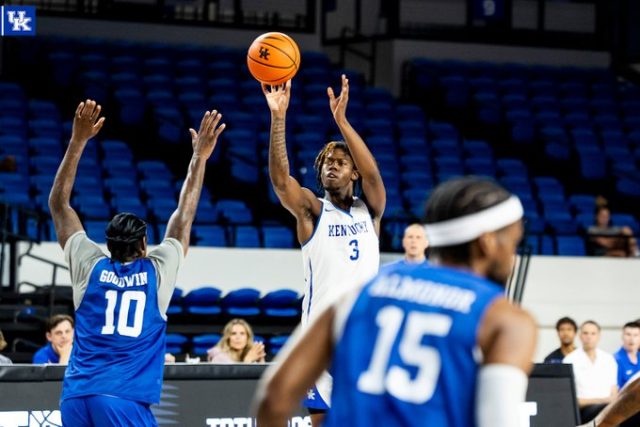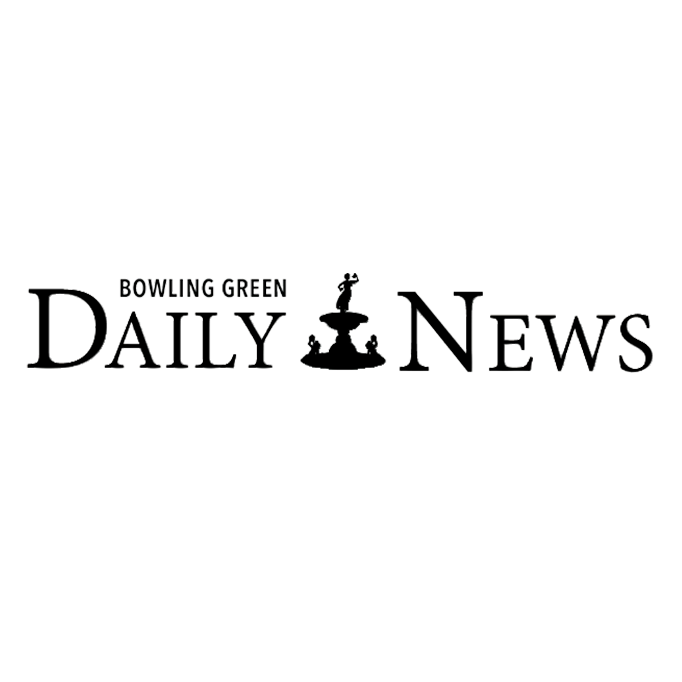The legendary sound of Buster Brown
Published 6:00 pm Monday, July 2, 2012

- Late version of Buster Brown.
Note: This series of articles is designed to remember and celebrate all the wonderful bands that have played in the southern Kentucky region and become a part of its musical history and legacy. We are continuing our series with the well-known local band Buster Brown as remembered by former members Kenny Lee, Daryl Carter and Rico Thomas.
Ok, I got to ask; where did you get the name Buster Brown?
Trending
Kenny Lee: Steve Holmes, who was the drummer and band leader, put the band together, came up with the name and the idea, recruited all the players.
Rico Thomas: Steve Holmes came up with the name Buster Brown. We don’t know why, but believe it was a strong name for “busting out.” There was another Buster Brown. He was a black singer who became famous for doing “Fannie May.”
Daryl Carter: Steve Holmes, drummer for Buster Brown, named the band and recruited the members. Steve also handled the business end of Buster Brown, the bookings in Louisville during the formative years.
How and when did the band begin?
Kenny: Bobby Richey, the lead singer, was going to art school in Louisville where he met Steve Holmes, who was looking to start Buster Brown. It just so happened that I was looking at moving to Louisville at that time and Steve asked me to try out. We had our first practice in a garage owned by the Joni Agency where I met Rico Thomas, who became the bass player. Practice went well, Steve had some gigs booked so, off we went.
Rico: The four of us (Steve, Rico, Bobby and Kenny) were the original Buster Brown band. We formed in 1970 and continued as the nucleus until 1974. Buster Brown continued after 1974 with many new members. Rico and Steve were playing in different bands at an outdoor rock show at the Iroquois Park Amphitheater in Louisville. Steve was with the Carnations and Trendells. Rico was with Tom Owen’s band Hitchcock Railway. After a brief meeting with Rico, discussing dissatisfaction with their bands, Steve introduced Rico to his two friends from Glasgow, Bobby Richey and Kenny Smith. Bobby moved to Louisville with his then-wife Sheila Lawrence to attend the Louisville School of Art and play music. Kenny moved to Louisville to finish his student requirements from UK working for the state and play music. After the first practice at the Joni Agency, the four decided they had something special and pursued gigs locally then regionally. After spending time playing in local bars, the band teamed up with many national touring acts as an opening band.
Trending
Who were the members?
Rico: Rico Thomas, Steve Holmes, Kenny Smith and Bobby Richey. Daryl Carter was the first new member known for screaming lead guitar solos and long blond hair. Many more followed and one of the last members was Johnnie Edwards, who went on to perform as lead singer with Foreigner.
Can you name a few of the cover songs that you regularly performed?
Kenny: Most of our cover songs were rearrangements of popular songs. We did our own version, which was most times a lot different from the original. The first one we worked up was a rocking version of the Junior Walker song “Shotgun” and we had a version of “Day In The Life” by the Beatles that was a lot different from the original. We didn’t do covers like the record at all. A lot of it was we couldn’t, we had this thing that we could do and all the songs were done our way.
Rico: Our first song was “Shotgun.” In the beginning we regularly did songs by Grand Funk, Mountain, Cream, The Who and Johnnie Winter. Three-piece rock bands, popular in the late ’60s and early ’70s. Later we performed a majority of original material taking extended solos.
Did you write your own material?
Kenny: I was writing a lot of songs at the time, so we worked up whatever it was I had written. We had about 20 originals plus the rearrangements of covers made us more of an original music band.
What sorts of gigs did you guys typically play? Clubs? H.S. dances? Festivals?
Kenny: Everything! Whatever we could get! We did teen hops, high school dances at first and we got by on those, I think, but we really didn’t fit. We weren’t a straight cover band. We were a loud rock band with an original music approach so it didn’t really work for us until we got in the clubs and some outdoor shows. After we opened for Alice Cooper, we got known as more of a concert band, which got us into the festivals of the time. It also allowed us to travel more as our name got out.
Can you tell us about one or two particularly interesting gigs?
Kenny: They all were interesting! It was a wild time. I could write a book, but a lot of it would have to be adults only. You can’t live that way anymore. Anyhow, opening for Alice Cooper the first time they came to Louisville was the most significant, because it opened up doors for us. Also, opening for ZZ Top the first time they came to Louisville was a significant gig. In fact, ZZ Top kind of changed some things for us and a lot of people. For instance, my original songs became more about Kentucky, kind of like their songs were a lot about Texas.
Did you go on tour by yourselves or with another band?
Kenny: Generally we toured by ourselves. Sometimes we were the headliner, and sometimes we were the opening act. We did do a nice tour with Rory Gallagher. We opened for him. He was a great musician, a wonderful guy, and I learned a lot from him on that tour.
Did you ever make a record?
Kenny: We tried to, but at the time, there were no studios that could capture our live sound. Recording facilities and recording engineers in Kentucky and Nashville were more like country and gospel studios. It was real frustrating and we broke up before we could get anything down we were happy with.
What happened to the band?
Kenny: Rico and I left Buster Brown and moved to Cincinnati, where we started the Black Mountain Band. I liked the Ohio scene better at the time; better venues, better money and we had a good agent. We thought we could do something better there. Unfortunately, our equipment got stolen from our bus, which broke up the band. We were broke, no money to buy new stuff.
Rico went back to Louisville and rejoined Buster Brown with Daryl Carter on guitar. I was working a day job in Covington, getting some money and my life back together. After a while, Steve asked me to rejoin Buster Brown and I did. I would drive to Louisville and play because I needed the money. Didn’t get much sleep and after a few months of that, I got a job transfer to Bowling Green and left the band for good. They went on through several different incarnations after I left.
In fact, the last version of Buster Brown that Steve put together did really well. Steve had some great players and singers, good songwriters, and I feel they did much more with the Buster Brown name than the original version did. I mean, when they played Bowling Green and I heard them, I knew they were better than we were. Johnny Edwards is a monster vocalist who went on to front an album for Foreigner. Steve is a great drummer. They are the Buster Brown that Louisville remembers, I think.
What are each of you up to now?
Kenny: We’re all still involved in music, except for Bobby Richey, who gave it up a long time ago. I live in Bowling Green, work with the Kentucky Blues Society, the Newgrass Festival, as well as perform as Kenny Lee, or with Duckbutter, or as Kenny Lee and the BBQ Band. Rico lives in Louisville and plays with the Pranksters. Steve Holmes lives in Louisville and plays with Stray Cat Blues Band. Bobby Richey’s son Jake tells me his dad likes to work on cars. Rico, Steve and myself still get together every once in a while. Last time was at a blues jam at WhaBah’s. And Rico keeps talking to us about a reunion, but I don’t think it will ever happen. Bobby is not into it and really that was then and this is now.
Rico: Steve currently plays in Louisville including the Stray Cat Blues Band with Greg Martin of the Kentucky Headhunters and Lamont Gillespie on vocals. Kenny Smith has been back in Bowling Green for a long time playing and running the music at WhaBah steak house. Rico Thomas has played with Louisville’s Pranksters for 12 years. He has had numerous stints with local Bowling Green bands, including Mitchell Plumlee, Delbert Fields and Jarod England. At one point, I moved to Detroit and played with Juicy Lucy in 1975 to 1977.)
Thanks so much for taking time to reminisce. What do you want folks to remember about Buster Brown?
Kenny: Hopefully people will remember us as a very good band that people enjoyed seeing live and that had some good songs. I mean, Greg, Richard and Fred say nice things about us, how we were an influence on the Kentucky Headhunters and I still have people from that era that request the songs. But really, we just did what we wanted to do at the time. Looking back now, I’m mainly glad we survived it. It was a wilder time, much more dangerous than today. We were truly living on the edge. Everything else since then has been so much easier than the Buster Brown years were. Just thinking about it for this interview is a little scary. Ha ha.
Daryl: Buster Brown has quite the legacy – if you are not familiar with this band you should go to the Buster Brown Band Facebook page. There were three or four incarnations of BBB with two members moving on to play with international recording acts. This was not just a local bar band. Greg Martin of the Kentucky Headhunters has acknowledged Buster Brown as a major influence on their sound and approach. Johnny Edwards played with King Cobra, Montrose and Foreigner. James Kottak with Warrant, King Cobra and is the current drummer with The Scorpions. While these might be the two most illustrious members others have gone on to accomplish musical and non-musical goals of their own. In fact, almost all members have performed with or been in national recording acts as side men or studio players which are too numerous to list.
 About the author: Jack Montgomery is a librarian, author and associate professor at Western Kentucky University where he handles bookings for musical acts in University Libraries, Java City coffeehouse. Jack has also been a professional musician since 1969 and performs with a celtic quartet called Watersprite. Visit him on Facebook.
About the author: Jack Montgomery is a librarian, author and associate professor at Western Kentucky University where he handles bookings for musical acts in University Libraries, Java City coffeehouse. Jack has also been a professional musician since 1969 and performs with a celtic quartet called Watersprite. Visit him on Facebook.







